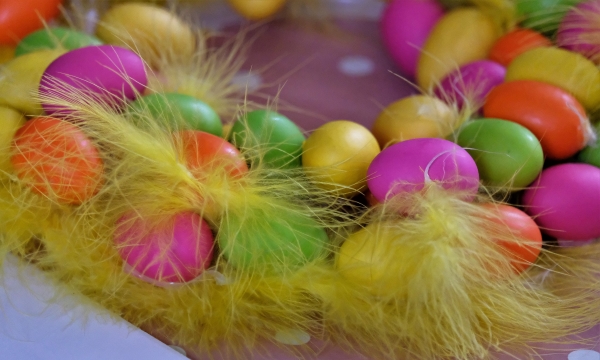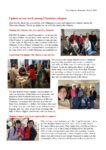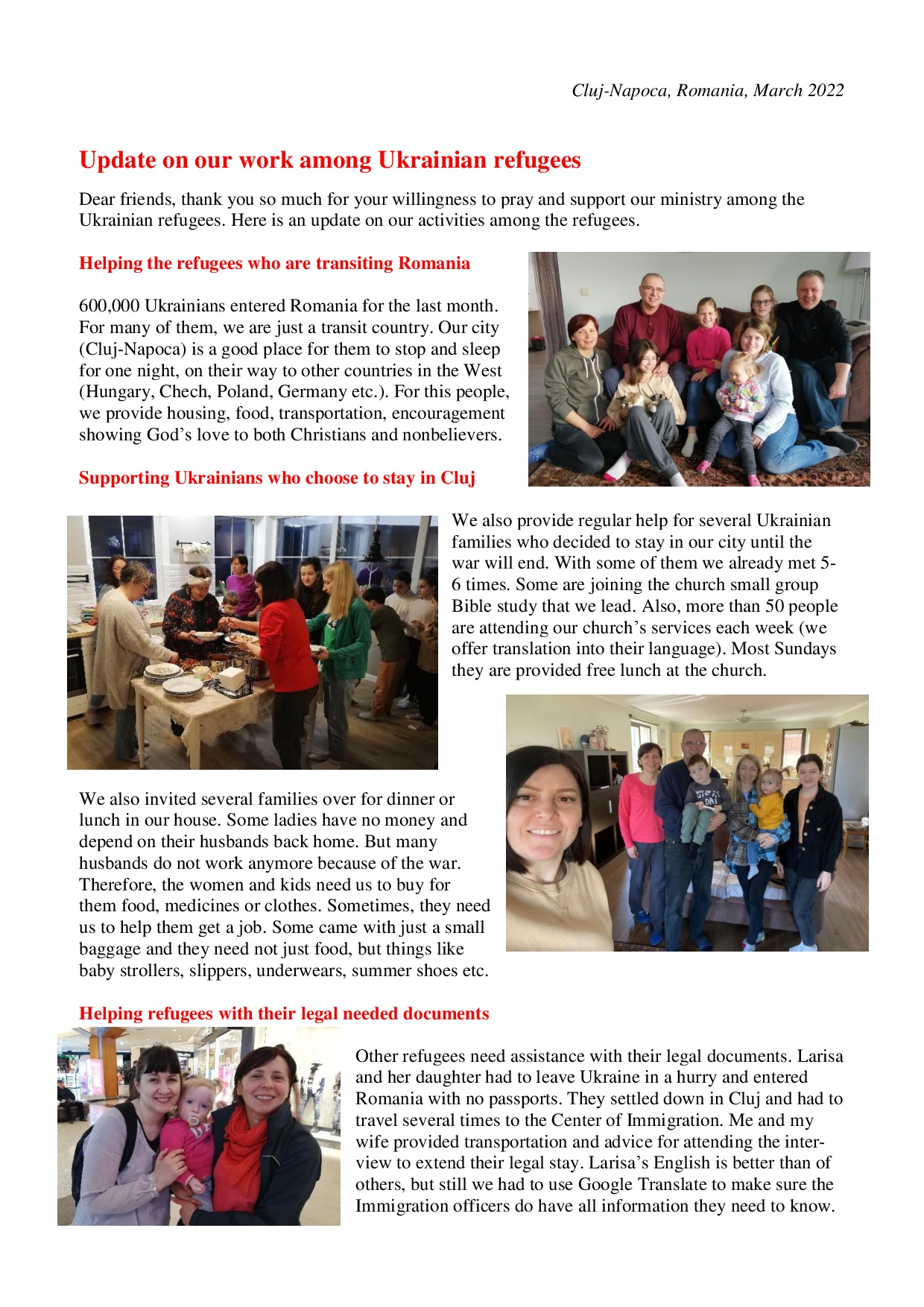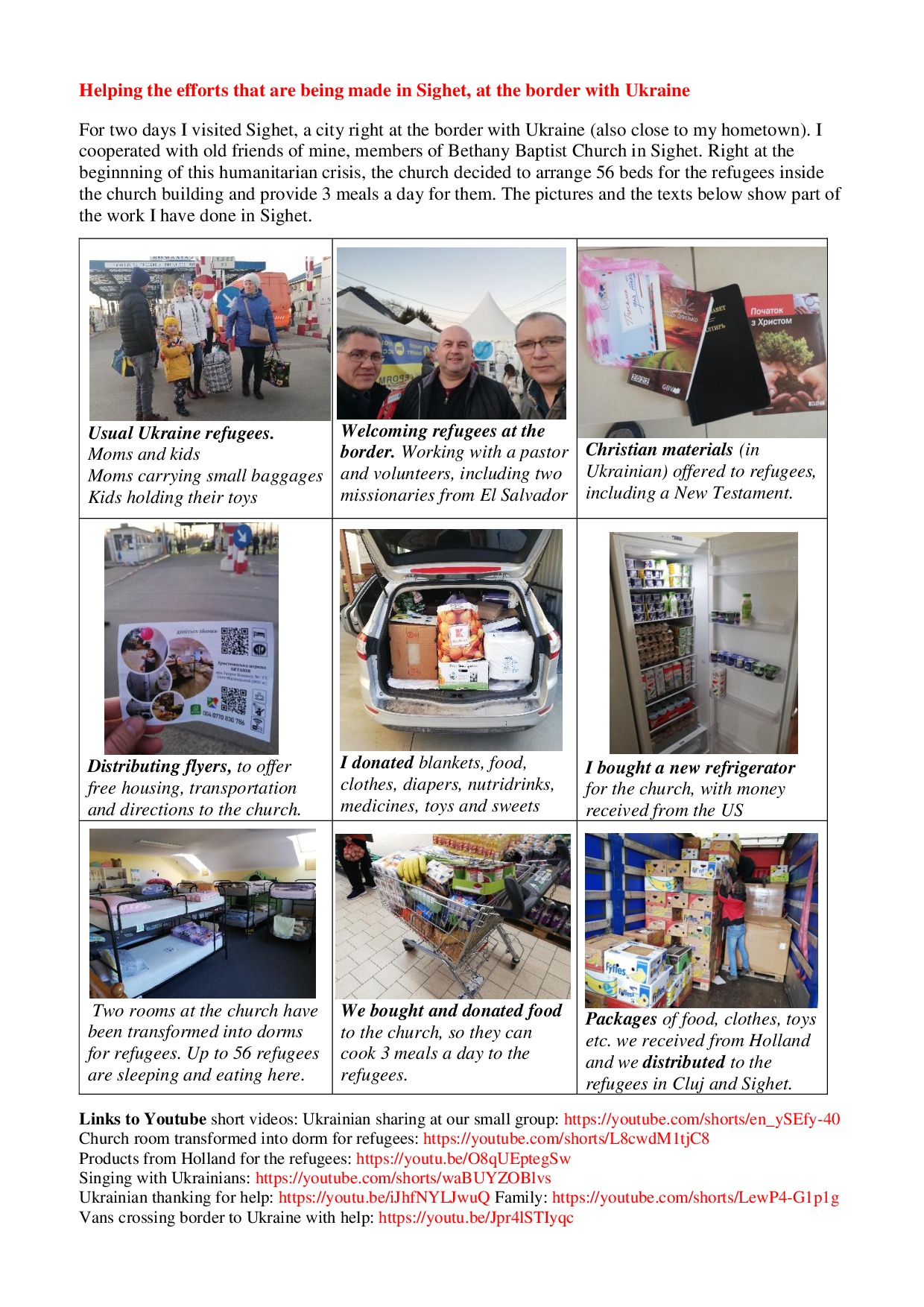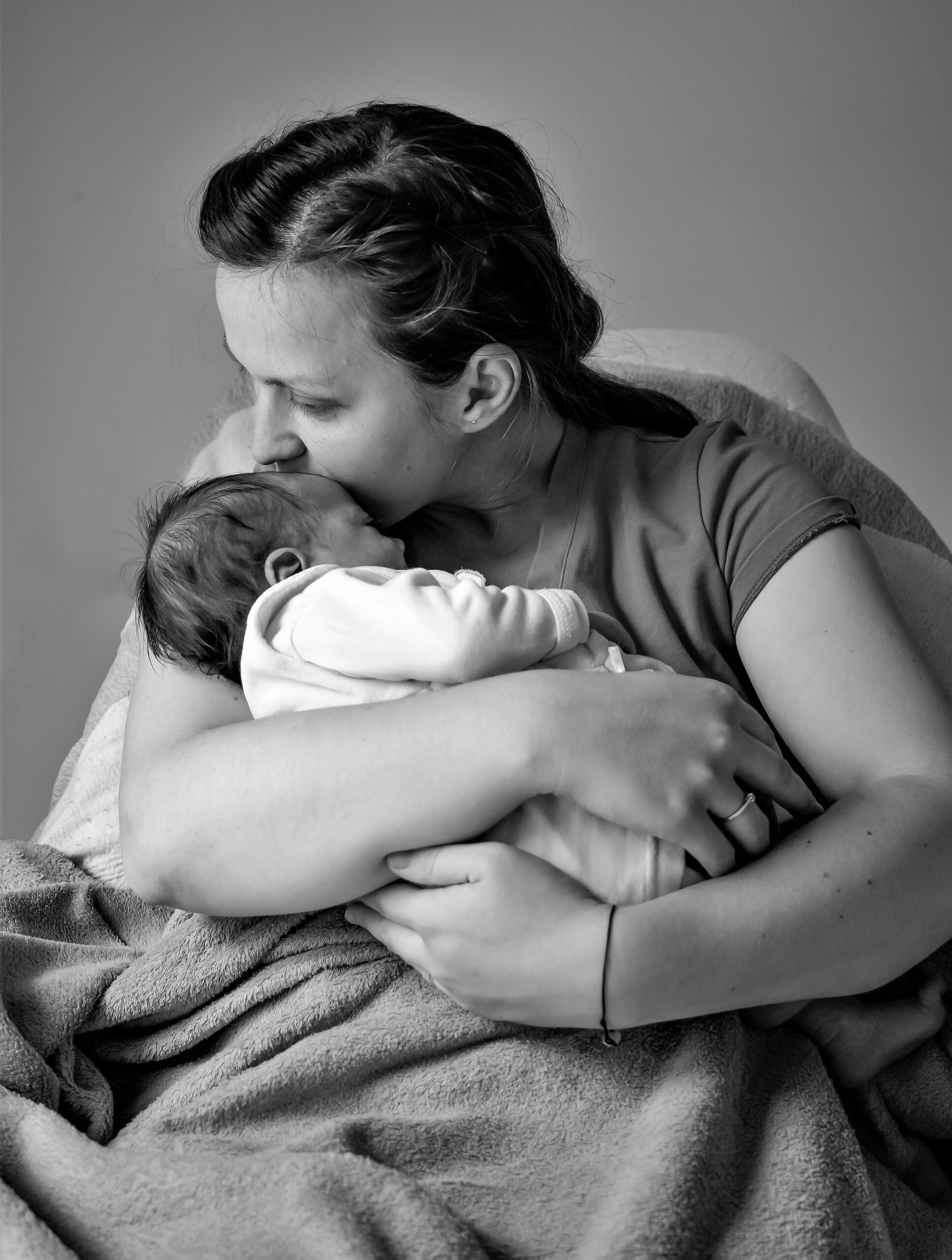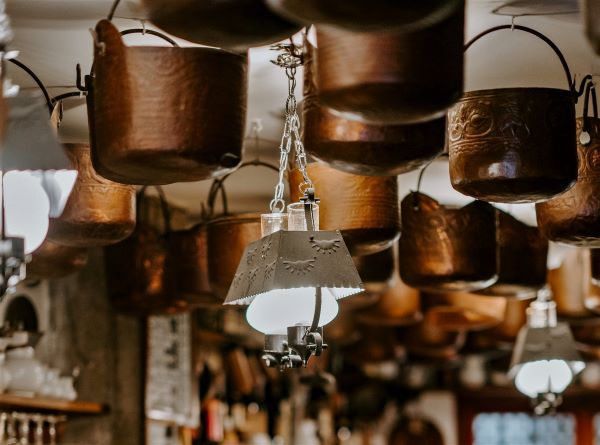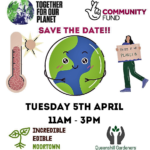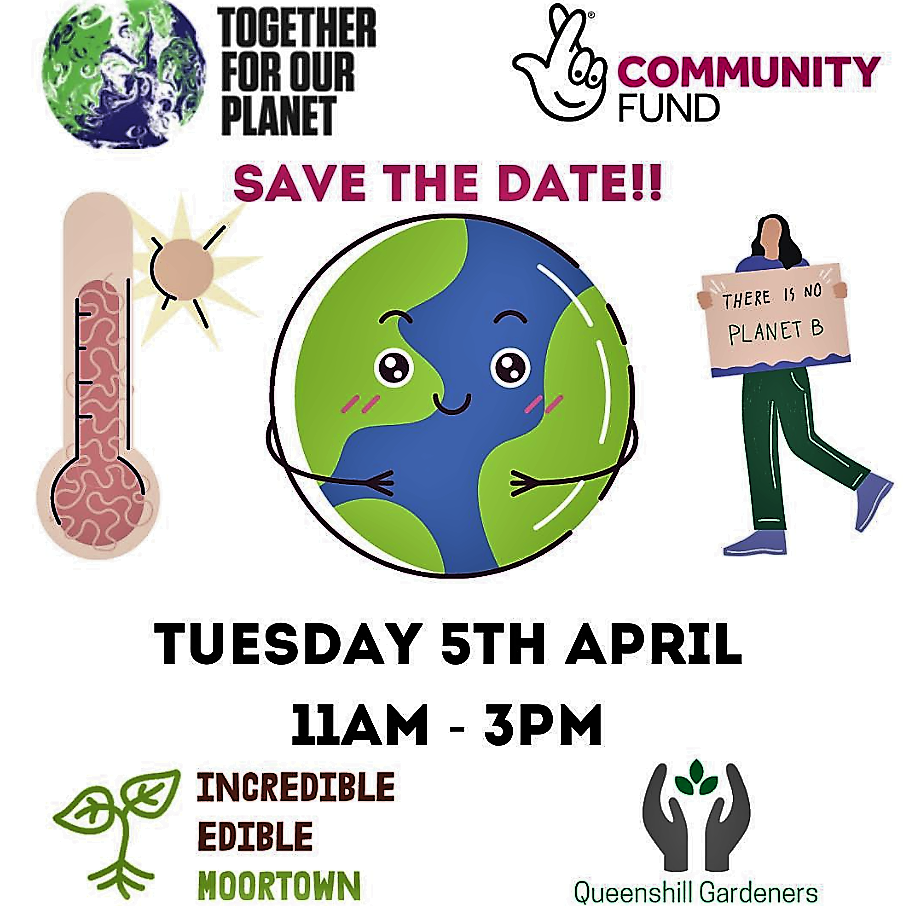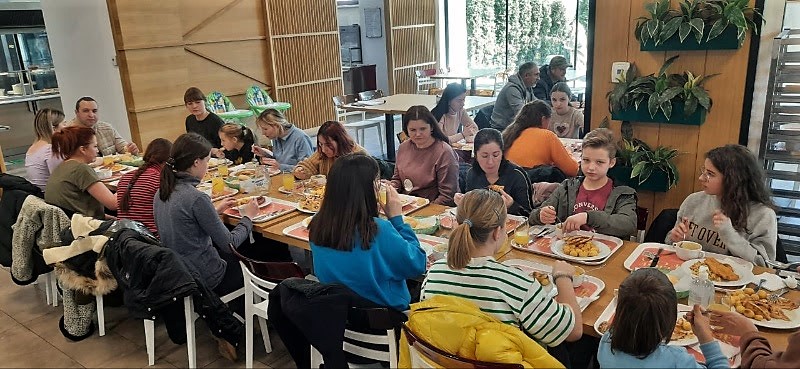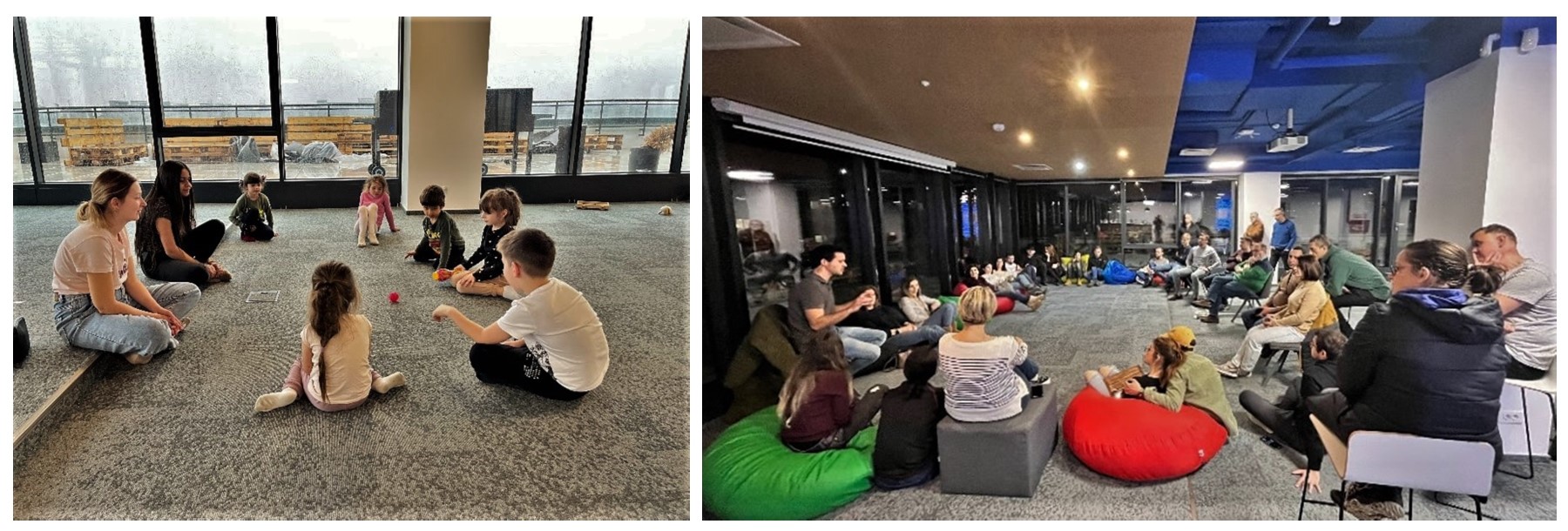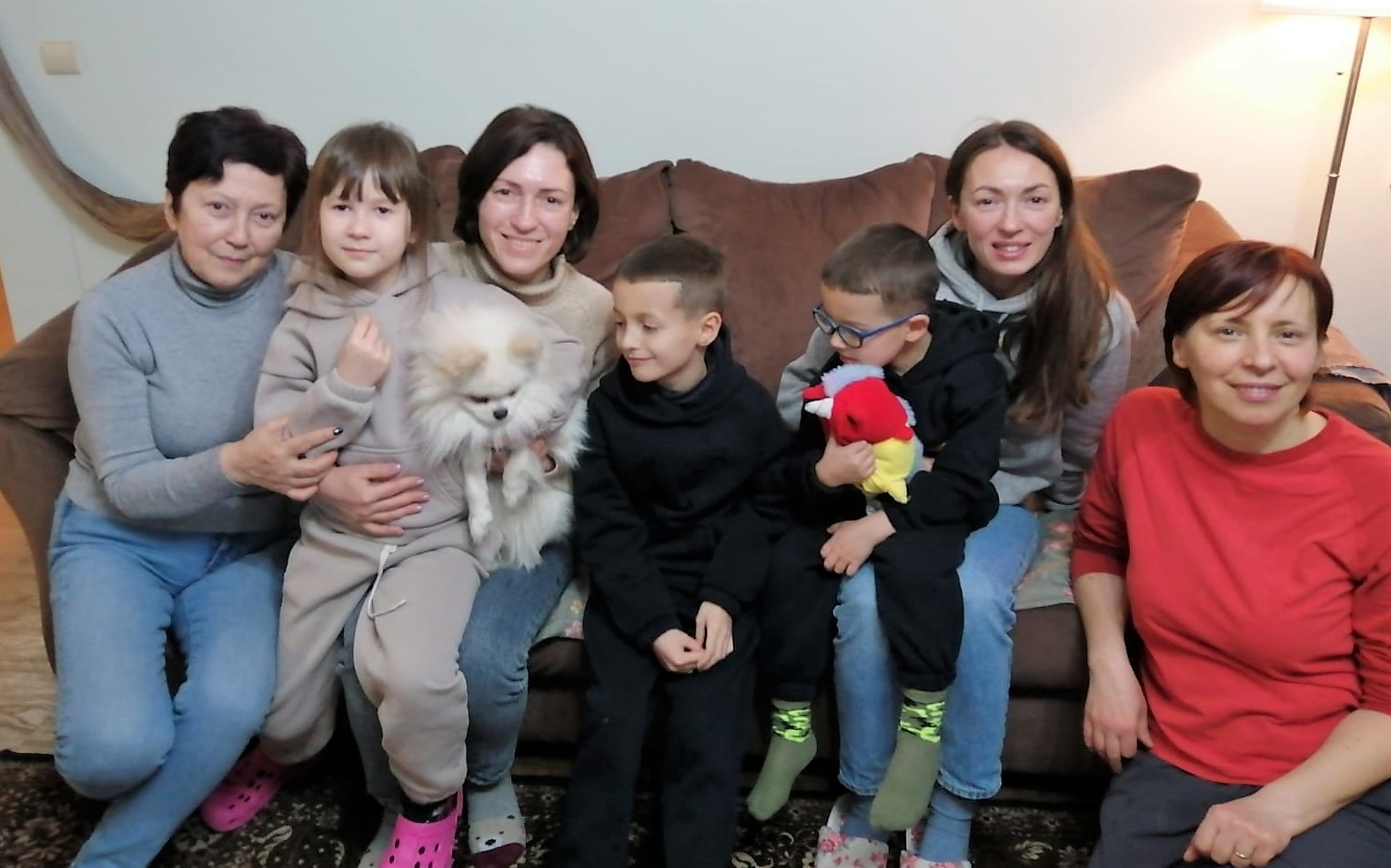The key word in today’s reading (Luke 13.1-9) is ‘perishing’.
People told Jesus the news of the day to Jesus. They tell him of people who were not just killed by Pilate but had their blood mixed with their sacrifice, shaming and polluting them in their death. Some perish through deliberate human evil. We today see people perishing at the hands of Pilate-Putin
Other people perish in accidents – a building falls on them… cars collide…lightning strikes…no one can be blamed, it just happens.
Such events draw our attention to perishing as significant characteristic of human existence.
They disturb our complacent assurance… violent death shocks us, because perishing happens suddenly, visibly, inescapably, cruelly – the bomb falls, the building crumbles, people living in the habits of innocent daily routine disappear.
Jesus does not allow us to say ‘they perish because they are bad sinners, we are safe because we are better’.
He says, we will all likewise perish, one way or another, unless we repent, unless we turn and get on a different road.
Perishing sometimes happens blatantly in death. Death is definite, irreparable; it obliterates, it ends something good, it diminishes the world, God’s creation – no wonder it shocks us.
But perishing also happens to people before they die – under the pressures of life, we lose heart, the will to live, we perish inside, and we can go on like that for years… we are dying slowly long before we die physically.
When a curtain perishes, it may go on hanging in place for years, but a little tug will be enough to tear the rotten fabric.
Paul described this kind of perishing very precisely, I Corinthians 13.1-3:
If I speak in the tongues[a] of men or of angels, but do not have love, I am only a resounding gong or a clanging cymbal. If I have the gift of prophecy and can fathom all mysteries and all knowledge, and if I have a faith that can move mountains, but do not have love, I am nothing. If I give all I possess to the poor and give over my body to hardship that I may boast,[b] but do not have love, I gain nothing.
‘I am nothing’ – I am perishing!
When he commented on these two stories, Jesus was not trying to explain why these people in Galilee and Jerusalem died so suddenly and horribly. Rather he was speaking to the living people who were with him, who were in danger of perishing however healthy they looked. He wanted to awaken them to where they were, on the road to perishing, and to tell them to turn, so that they didn’t drive blindly on to a bridge that wasn’t there, because it had been washed away by floods.
Luke tells several stories where Jesus unmasks ways of perishing before we die.
In Luke 12, we read of the Rich Man, who had a big safe pension, so he said to himself, I have ample goods laid up for many years, relax, eat, drink and be merry. But God said to him, you fool! This very night your soul will be demanded of you, and where will all your wealth be then? Jesus said, So it is for those who store up riches for themselves and are not rich toward God. Even in their plenty and their complacency, they are perishing – and they don’t give a thought to repenting, to turning round to find out what it is to be rich toward God. The rich fool was wise enough to know that it is good to have enough of what is necessary, but not wise enough to see that you can have too much stuff to be good for you.
In chapter 18, another story Jesus told is of the Pharisee who went to the temple and talked ‘with himself’, all the time assuming he was really talking to God. In deep self-assurance, he boasted that he was pleasing to God, rich toward God, for he said, God, I thank you that I am not as other people are… thieves, rogues, adulterers, … I’m not like this tax-collector, who is clearly a very bad sinner… (We today, in England, might be tempted to say, We are not like those Russians.)
All the while, the tax-collector hid in the shadows, could not lift up his head towards heaven, beat his breast, saying, God be merciful to me a sinner – I am perishing, rescue me!
And the verdict of Jesus was…? The tax-collector went back to his everyday living at peace with God, justified rather than the confident pharisee. The pharisee was perishing even while he prayed. His prayers shielded him from the truth about himself, life and God.
Jesus does not condemn people like the rich fool and the pharisee. Perishing is eating away at their life like a hidden disavowed cancer. Jesus does not hasten to bring it directly to its end in death. Jesus bends all his effort to opening their eyes to see they are perishing and to move them to do something about it, to turn, to repent.
But turning is not easy when you feel comfortable, assured that you are a good, capable, outstanding person, even a ‘world-leader’… or even just a ordinary decent person.
The good news Jesus brought is not just a warning, You will perish if you don’t turn round. A mere warning, however urgent, leaves you with the task of turning yourself around. We need help.
Jesus not only warns people but sets out to help them to turn from death to life, from perishing by themselves and at the expense of others, to flourishing with others in love and service. So Luke 9 goes on to tell us the story of the unfruitful tree, which reminds me of our damson tree that keeps us waiting, year after year, for flowers and fruit that never come.
Cut it down, says the rich hard landowner – this tree is not profitable, I must look after the viability of my business, just like P and O ferries getting rid of these good sailors and don’t mind the abrupt cruelty and injustice. Cut it down!
Hang on, says the gardener who loves and understands living things, give this tree a chance – I will feed it and then let’s see what’s happens. Trees are resilient, trees should be respected, they do their own thing in their own time, but they need help. They need time. They need a second chance.
Jesus told stories like this, and he dealt with people like this – he did not say, Do this or you will be cut down immediately. He said, Let me tell you good news in stories so that you may come to see life-issues more clearly; let me help you to accept that you are perishing, but also, that there is a different way to go; let me show how you can turn: I will help you to get on to a different path.
The best story Jesus told to make this point which Jesus told is reported only by Luke, the story of the two sons.
The younger son was on the perishing road from an early age. He could not stand living at home, he wanted a high life, in wild freedom. He got all he could squeeze from his father, went off to a far country, and spent all his money in riotous living. It did not seem to him and his superficial friends that he was perishing, but that was the truth. All the promise of his youth vanished in tatters. A famine came, prices shot up, and he had no money and no helpful friends. He got a miserable job looking after pigs, and he was so hungry he wanted to eat their food.
And then, the turning point – He came to himself: he came to the self he had undervalued and wanted to escape from, he remembered life in his family home, and he reassessed his situation: Even the servants in my father’s house have plenty to eat, and here am, I a son of the house, perishing with hunger.
‘He came to himself’ – on the face of it that sounds much like the Pharisee who ‘prayed with himself’, but look again, it is quite the opposite. The son came to himself, saw himself in the comparison of his Now and his Then, and didn’t boast brazenly but said,
I am perishing. And it need not have happened. It could have been otherwise. But can it be otherwise tomorrow? Am I too far gone? Am I doomed to perish, dying friendless with these pigs? Is there a chance of change?
My father’s house is still there – yes, I can believe that. But is it open to me? I can’t be sure, but I can try, I will try, I will get up and go, and I will do what I can to make it easy for my father to help me live again – I will say, I know I am not any longer worthy to be called your son, but make me as one of your hired sackable servants.
So the poor man talked with himself, realistically, brokenly – and hopefully. And then he got on his tottering hungry legs and started walking home. His talk with himself was finished and he knew it’s no good just talking, something must be done. Steps must be taken.
You know how the story ends: the Father sees the Son far off, and runs to meet him, and gives him a lavish welcome, something like Gabriella gave Nazanin a few days ago, so they could celebrate with a pizza they made together’
The father says, This my son was dead, perished, and he is alive again..
That is the good news of Jesus. Plain warning of perishing, not focusing on perishing in death and what comes after, but on perishing going on now, long before death, perishing that can start in earliest years. Jesus warns, but there is much more than warning: Jesus gives honest self-understanding, the courage and strength to turn, the willingness to revise and correct what causes perishing, and then the positive pursuit of goodness, walking humbly with God.
Two final notes: first, never forget the other, older son. It is not clear at the end of the story whether he was going to come into the feast or not, whether he could be glad, like his father was, that his wastrel perishing brother had come back to life, or whether he wanted to persist with his grievance, and begrudge his brother’s return to life and refuse a slice of pizza.
Luke often gives us stories like this, stories where people are left at the end hovering indecisively, hesitating to go with the story, not sure whether they really like it, as good news. This story does not have a fully happy ending – perhaps it came out good for everyone, even for the older brother. Perhaps he stayed out, hugging his grievance, perishing in his own steady domestic way. You can stay at home and still be lost in a far country, but you don’t have to – the last we hear is the father warmly pressing his son to come in. Ending the story that way subtly puts a question to every one who hears it – what will you do now? Don’t assume you are the prodigal son, safely home for good. Stand with the elder brother, ask yourself, Is it I? What shall I do? What do I want?
Secondly, I started this talk by saying ‘Some perish at the hands of evil people – like ‘Pilate-Putin’. I did so deliberately – Ukraine is constantly in my thoughts, and I expect in yours. There isn’t time to say more about Ukraine now, but I suggest everyone needs to consider the relevance of today’s reading to the times we are living through. The gospel of Jesus illuminates big politics as well as little individual lives. We are all perishing, in various ways, whether or not we physically survive. And we need to work at caring for the tree that is perishing, the tree of freedom and justice, of peace, truth and humility. We pray and think and work for a turn from death to life, war to peace, waste to stewardship, misery to joy. We need to turn, not only personally, not only religiously, but politically. May God have mercy on us sinners.
[and we mustn’t let the urgency of Ukraine be an excuse for demoting the urgency of net-zero – the climate crisis reminds us of another way we can perish, where we are called to repent, and to turn to other ways.]
